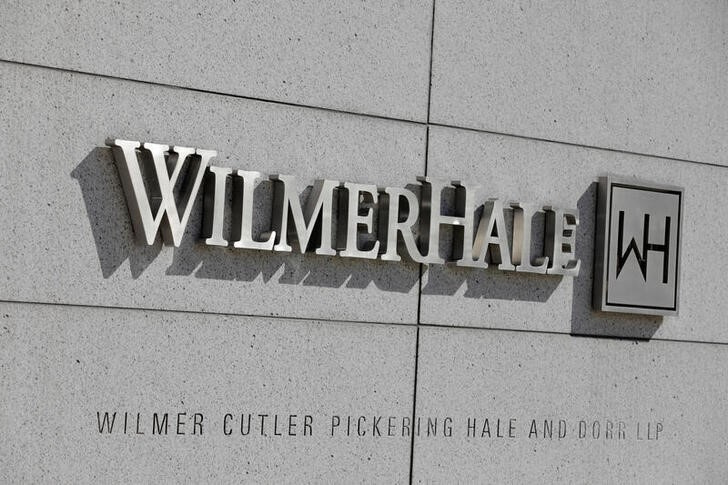New York
Former Senior Associate Files Racial Discrimination Lawsuit Against Biglaw Firm WilmerHale

WilmerHale, rated 34th on the Am Law 100 with $1,344,519,000 in revenue last year, was sued in New York state court on Friday. Jean E. Dassie, a former IP practice group senior associate, brought the action pro se in this case.
A naturalized Cameroonian citizen, Dassie, blamed most of the claimed prejudice on his dealings with lawyer Anh-Khoa Tran, another defendant in the complaint, Law360 said.
Dassie’s case centers on a 2022 dispute with Tran on trial slideshow change methodology. The complaint claims that Tran berated Dassie when he voiced his misgivings about the planned technique, emphasizing his counsel status and insisting on his preferred manner.
Dassie alleges he was placed on an interim review plan following a flawed year-end assessment in September 2022 due to this dispute.
According to WilmerHale’s report, Dassie “continued not to follow the instruction, which led to an altercation that is inconsistent with WilmerHale culture and values.”
The complaint said, “Blinded by its prejudice, WilmerHale accepted Tran’s version of events uncritically and published the falsehoods in plaintiff’s year-end evaluation.”
Dassie claims that the unfavorable review was used to fire him despite having above-average thoughts during 2022 and 2023. He claims he was given mundane jobs below his rank and unjustly penalized for mistakes.
WilmerHale has not commented on the case. The lawsuit highlights legal sector racial discrimination issues and calls for more inclusive and equal workplaces.
Racial Discrimination In WilmerHale: Black Professionals’ Experience
Racism continues to impede diversity and inclusion in corporate legal practice. Former senior associate Jean E. Dassie’s lawsuit against WilmerHale has highlighted Black professionals’ ongoing struggles at top law firms. Dassie’s story shows how subtle but pervasive racial prejudice may affect a promising legal career. His charges of maltreatment and discrimination highlight the need to evaluate workplace relations in the legal context.
Combating Stereotypes In Professional Evaluations
The complaint illuminates WilmerHale and probably other legal organizations’ assessment flaws. Dassie’s claims imply that preconceived conceptions and racial biases may have impacted his year-end rating, unfairly portraying his professional skills. The case highlights the necessity to critically examine Black professional performance assessment processes and develop equitable and impartial evaluation standards to promote fair treatment and equal chances for all workers.
Face Institutional Biases: Creating Genuine Diversity And Inclusion
WilmerHale’s inaction on racism and discrimination claims highlights the difficulties of correcting legal industry institutional biases. Dassie’s assertions of being given menial work and unjustly blamed for mistakes reflect the many obstacles Black professionals face, emphasizing the need to reevaluate diversity and inclusion strategies in legal firms. The lawsuit calls on legal institutions to aggressively promote diversity and eradicate systematic prejudices to make the judicial system genuinely equal and inclusive.
Upholding Accountability: Microaggressions And Professional Advancement
The case of Jean E. Dassie shows how microaggressions may stifle Black legal practitioners. Dassie’s story shows how subtle dismissive attitudes and nasty statements may damage a career. Microaggressions may create a hostile workplace that devalues Black professionals’ voices. As the legal community struggles with inclusivity and respect, firms must take decisive steps to address overt racism and the subtleties of discrimination that hinder marginalized employees’ professional growth.
Read Also: Racism And Abuse Allegations Bring Northwestern A #metoo Moment
Championing Structural Reforms: Diversity Beyond Superficial Representation
After the WilmerHale litigation, legal institutions must go beyond tokenistic diversity and inclusion. While superficial representation may provide the impression of progress, Dassie’s situation highlights the need for structural changes that empower and respect Black professionals somewhat. It requires thoroughly reviewing recruiting, mentoring, and career progression initiatives to guarantee that varied ethnic groups may succeed. Law firms can welcome Dassie and give her the resources and support she needs to grow and contribute meaningfully to the legal landscape by fostering an inclusive culture that values the unique perspectives and contributions of all employees.
Promoting Accountability: Transparent And Fair Conflict Resolution Protocols
Legal institutions need precise dispute resolution mechanisms, as shown by the WilmerHale litigation. Dassie’s description of the disagreement with attorney Anh-Khoa Tran and the poor assessment emphasizes the need for a fair and reasonable conflict resolution procedure without prejudice or punishment. Implementing comprehensive conflict resolution frameworks prioritizing open communication, impartial investigations, and equitable solutions can help create a workplace where differences are constructively addressed and people are held accountable. Law firms may foster a culture of mutual respect and understanding where diversity is recognized and all workers, regardless of race, are heard and appreciated by promoting openness and responsibility in dispute resolution.
Maintaining Professional Development Equity: Addressing Systemic Barriers For Black Lawyers
Despite the legal industry’s dedication to diversity and inclusiveness, Black legal practitioners’ recurrent struggles demonstrate structural barriers to professional advancement. Dassie’s action highlights WilmerHale’s and maybe other legal organizations’ uneven opportunity distribution, emphasizing the necessity for proactive steps to remove Black career hurdles. A comprehensive overhaul of existing systems is needed to ensure that all legal professionals, regardless of race, have equal access to career advancement and growth opportunities, from high-profile cases to leadership roles.












You must be logged in to post a comment Login